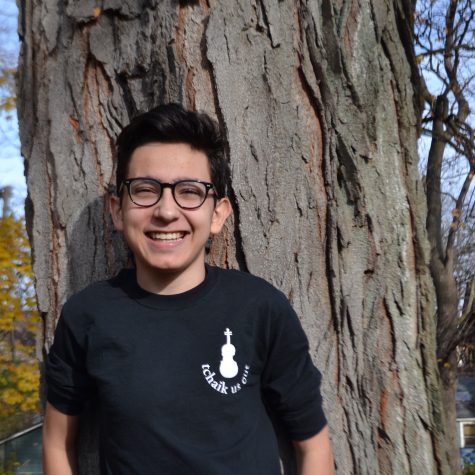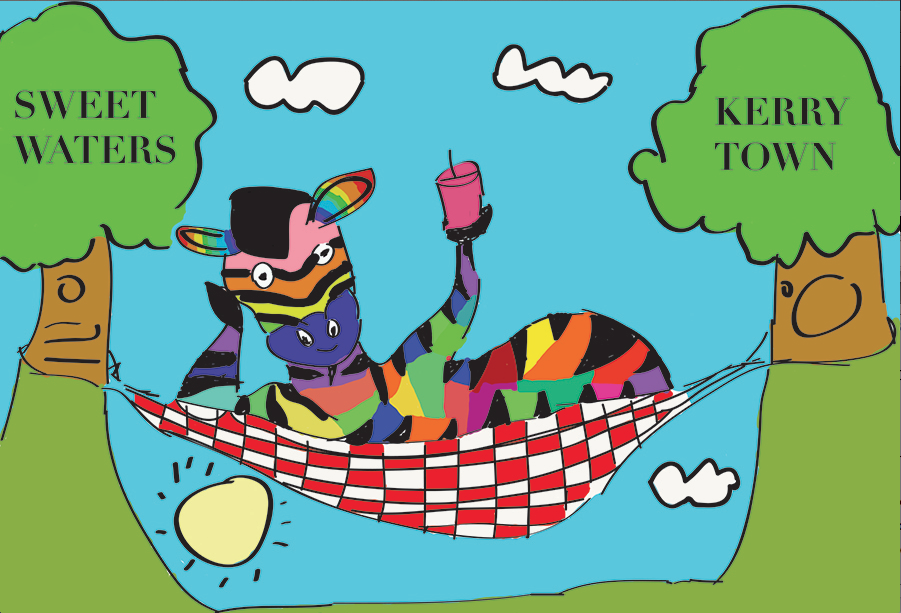
Artists and Stoners
A look inside CHS stereotypes, and why they exist.
December 5, 2016
Accepting. Lazy. Cool. White. When seven Pioneer High School students thought about Community High School students, these are some of the words that came to mind.
Unfriendly. Rude. Weird. Okay. These are some of the words the same PHS students used to describe their peers at Pioneer. In fact, in nearly all of the word association sessions conducted, Pioneer students used more derogatory words to describe their own student body than the one at Community.
In addition, all of the students associated the school Community High with positive words. Some of these included “peaceful,”“cool,” “fun” and “friendship.” “When I think about [Community], I just imagine the green lawn and I’m like ‘Wow, that sounds nice!’” one PHS student said. “It’s calmer and less stressful.” It appears these students think of Community highly as opposed to their own school, where some of the words said by the same people were “scary,” “work” and “death.”
So if Pioneer students themselves see Community in a better light than Pioneer, why does CHS connotate stereotypes such as the students not doing any work and smoking weed all day?
The Stereotype
Emily Williams* is a student at PHS, one of the “Big Three” main high schools in Ann Arbor along with Skyline and Huron. Williams said that a few stereotypes she had heard about Community were that the students were stoners, and it was a much more artistic school, with much less stress on academics than Pioneer.
“You go there if you’re interested in arts or laid back high school,” Williams said. “Not that it’s less academic or anything, it’s just more chill and relaxed. I think if my whole life wasn’t about college at this moment, I would love to go there.”
The Alumnus
Kelly Stupple attended Community at a time where these stereotypes were abundant: the 80’s. She came from West Middle School, and heard about Community through a community theater group she did in Ann Arbor.
“I really learned from them that it was a school where the kids had a lot of freedom to choose what they studied and they could design their own credit classes, so I was really excited by the idea,” Stupple said. “I liked the idea that the kids that I met from Community were off-beat. They seemed like they would question authority and that they were not interested in living lives that were ‘status quo.’”
Stupple saw herself as an oddball, the only mixed raced person in an all-White family. “What I liked about Community was that [it] was different from the norm, and I felt that [at] a school where different was the norm, I could feel like I fit in,” Stupple said.
Stupple had to apply, but got in automatically due to the school’s need for students. Every year, the school board threatened to shut the school down and every year, Community struggled to get enough students to stay open. Stupple thinks that the reason for the difficulty of getting students had to do with one thing: the stereotypes.
“I think that a lot of times, people see ‘different’ as ‘bad’, and if they don’t take the time to learn what it’s really about, they might dismiss it,” Stupple said. “A lot of parents and even other students were sort of concerned, suspicious of students and the school. They thought it was a school for burnouts, kids who did drugs and didn’t pay attention in class, people who weren’t motivated.”
But that was not Stupple’s experience. She found that the Community student body was just as dedicated, if not more, to their studies as the other mainstream high schools. Many took classes at the university and were “committed” and “full of life”.
The Colleges
Although Williams suggests that CHS does not focus on college to the same extent as other schools, the data shows otherwise. In last year’s graduating class of 2016, several students went on to attend prestigious schools such as Yale University, Cornell University, New York University and the New England Conservatory of Music. After graduating in 1987, Stupple went on to Harvard University. Furthermore, if you go inside Community’s counseling office, you will find yourself surrounded by college pennants and shelves filled with college books.
The Standardized Testing
In terms of standardized testing, CHS does well in comparison to the “Big Three” schools. In 2016, the mean SAT score of CHS was 1170, just five points short of first with Pioneer’s average of 1175. Community also scored higher in the Reading and Writing portion than any other public high school in the Ann Arbor Public Schools district, and despite the facts showing that Community does just as well as the other school in the district, the lazy stereotype still exists.
The Other Alumni
Williams thinks of herself as a highly academic person, whose grades are top priority, which is not what she thinks of Community students. “I associate stoners and art and general joyous things with Community but not necessarily joyous things that would push me forward in life,” Williams said.
The achievements of Community alumni show that they were indeed “pushed forward in life.” Take Fernando Rojo, who was featured recently in the Huffington Post in October for starting Patos, a shoe business inspired by Argentine footwear. Or Josh Silverman, the former CEO of Skype. Or Gene Sperling, a former economic advisor to President Bill Clinton and the director of the National Economic Council. The alumni, among others, have accomplished big feats, and they all came from Community’s alternative education.
The First Names
A different aspect of Community that caused concern for Smith, as well as others, was the first name basis that the students have with teachers. “Personally, if I was a teacher , [I] would not want to be called by my first name,” Williams said. “If they’re respectful kids doing it in a respectful way, that’s fine, but not all kids are that respectful.”
But fearing disrespect with the first name is a popular misconception. Liz Stern, a FOS teacher at Community, has been teaching at Community for nearly 25 years and has had no problems with students calling her by her first name. “I’m fine with it. I think it’s great,” Stern said. “There’s not a barrier. It doesn’t feel disrespectful at all. The relationship is more important than the title. I think kids can be disrespectful no matter what they’re calling you.”
The Opportunities
A big public high school such as Pioneer also gives an opportunity for students to do many things all around, such as as participating in music, athletics and programs such as Health Sciences.
But opportunities are also abundant at Community. Students have the opportunity to participate in CHS’s acclaimed jazz program, who has hosted Grammy award winning artists such as Hal Galper and Robert Hurst. A combo coming from CHS, Tempus Fugit, won Downbeat Magazine’s Outstanding Performance Award in the high school combo contest just last April.
Community also offers the Community Resources program which allows students to take classes that aren’t part of the regular curriculum and encourages students to go out into the greater Ann Arbor community and learn about certain subjects from experts. from the CR program when she went to Community.
“You could take a dance class, you could take a voice class, you could a language, and they weren’t limiting you,” she said. Stupple came from a middle school that only had enough money for the core subjects and one elective, but it was different in high school.“At Community, there were semesters when I would take seven classes, eight classes, and some of those classes were credits that I designed,” she said.
Stupple took a myriad of Community Resource classes, including a home economics class where she worked at a daycare center, an internship at a law office for a civics credit and even a music history class taught by another student.
The Origin
Stupple admits that the indolent label did originate from somewhere. During her time at Community, there were certain students who would not commit, or meet at Community but leave to hang out at the arboretum or downtown, which was easier to do due to the open campus of the school. “There were certainly some students here who were doing drugs and not going to class,” Stupple said. “That was untrue about the reputation that anybody could go there and it didn’t matter how you behaved. it’s not that the school completely turned a blind eye, but here was less oversight, absolutely.”
However, there are good and bad students in every school, and to stereotype Community as the “drug school” or the school that has easier classes is inappropriate and incorrect. Just because there are some irresponsible students, does not mean that every other student is irresponsible
So Why?
So what is it about Community that makes people associate it with laziness? Is it the open campus? The lack of bells? Calling teachers by their first name?
Maybe. Maybe not.
Community is built around trust between a teacher and the student. The students receive the same amount of education as other schools. Just because it is smaller and has different rules does not mean the students are any less smart than others. In the end, negative stereotypes should be looked past and discarded, because alternative is not synonymous with worse.


